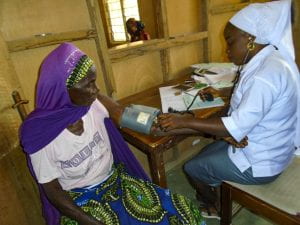 I watched the Tokyo Olympic Games and enjoyed my armchair view of the competitions. The personal stories of the contenders, their skills, fortitude, and camaraderie presented a multinational spectrum of dreams achieved, whether by presence or prize. I was intrigued by stories like the British gold-medalist diver who focused on knitting and crocheting as an outlet. Yet even as the Olympics dominated social media, cases of COVID-19 variants were suddenly spiking. News outlets juggled features of intense athleticism, with the climate crises, wildfires, and COVID.
I watched the Tokyo Olympic Games and enjoyed my armchair view of the competitions. The personal stories of the contenders, their skills, fortitude, and camaraderie presented a multinational spectrum of dreams achieved, whether by presence or prize. I was intrigued by stories like the British gold-medalist diver who focused on knitting and crocheting as an outlet. Yet even as the Olympics dominated social media, cases of COVID-19 variants were suddenly spiking. News outlets juggled features of intense athleticism, with the climate crises, wildfires, and COVID.
Through the prism of pandemic-related stories of patients, caregivers, and activists, I heard echoes of the Vincentian tradition: What must be done? What must I do? What must we do?
Vincent de Paul, the patron of our university, offers wise insight in response to human misery. Impoverished people suffer greatly, but “more through a lack of organized assistance than from lack of charitable persons.”[1] For this reason, after learning of a family wherein everyone was ill and incapable of helping one another, Vincent encouraged his parishioners to assist them.[2] Moved by compassion, he also visited their home. Afterward, Vincent called a meeting. He “suggested that all those good persons animated by charity to go there might each take a day to make soup, not for those sick persons only, but also for others who might come afterward” in order “to assist body and soul.”[3]
Vincent organized the first Confraternity of Charity, at Châtillon-les-Dombes, 23 August 1617. Intending to engage others to collaborate in addressing an immediate need, Vincent’s charitable project created a chain reaction. The model was replicated, expanded, and refocused over the ages as social justice issues necessitated systemic change and advocacy to create healthier tomorrows for impoverished persons.
From that humble beginning, four hundred years ago, over four million people now embrace the Vincentian way. Today, the 150 branches of the Vincentian Family are multicultural, multilingual, prophetic, and global in the service of charity, social justice, and systemic change.
- What moves me to act with compassion?
- When I know or see someone in need, how could I respond compassionately?
- When I see human suffering, what motivates me to take action?
Note: For more on the work of the charitable and systemic justice work of the Vincentian Family globally, see: https://famvin.org/vfo-en/
Reflection by: Betty Ann McNeil, D.C., Vincentian Scholar-in-Residence, Division of Mission and Ministry
[1] Document 124a, Foundation of the Charity in Châtillon-les-Dombes, 23 August 1617, CCD, 13b:3-5. Available at: https://via.library.depaul.edu/coste_en/
[2] Cf. Conference 24, Love of Vocation and Assistance to the Poor, 13 February 1646, CCD, 9:192-3; Conference 20, Observance of the Rule, 22 January 1645, CCD, 9:165-6.
[3] Conference 24, Ibid., 9:193; Document 124a, op. cit., 13b:3.
Thanks, Sr Betty Anne